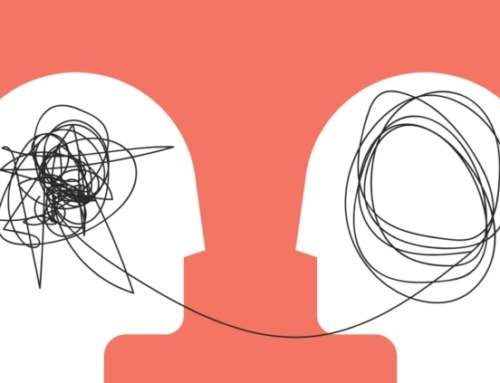Before a patient walks into your office, you’re just a random psychiatrist they got an appointment with. That patient could have just as easily gone to see a psychiatrist down the hall from you, or across the street, or across town. At that point, we’re all interchangeable. What leads a patient to see you as opposed to some other psychiatrist often has nothing to do with who you are, but with your office location or the patient’s health insurance plan or some other such factor.
But once the patient’s eyes meet yours, everything starts to change, sometimes slowly and sometimes quickly. You are no longer just another psychiatrist. You are becoming that person’s psychiatrist and that person will start to imbue you with all types of significance. You are now unique and better than the psychiatrist down the hall or the one across town. You are better because you now belong to that patient.
When I was a second year resident, I first became aware of this process of an unfolding relationship between myself and my patients. I started to realize how patients started to incorporate me into their inner lives. If a person said, “During the week I was thinking about what you said last time we met” –you’d think I’d be pleased at the impact I was having. I am now but was not at that stage of my early career. Rather, back then, I was freaked out. I felt like one of those “natives” who refuse to have their picture taken because they believe it captures a part of their soul. Whenever a patient began to incorporate me into their inner life, I too felt like they had captured a part of me. The rest of me squirmed.
Was my emotional response rational? Of course not. But my inchoate discomfort was indicative of something important going on. And that something is the relationship that develops between a psychiatrist and a patient. I now realize the power of this relationship and – often sometimes – I am able to harness it for the patient’s benefit. Back then I was beginning to see the power of the relationship but was scared and daunted by it.
What happens when a patient starts to form a relationship with you? They start to become attached and you become their attachment figure. Remind yourself that our patients are persons who often are struggling, are in pain, have fear, have low self-esteem, and usually have few others to turn to. You have the opportunity to become their advocate, their guide, and their surrogate parent in some way. You are a powerful person: you have the knowledge and the status to help them. You can deploy your resources on their behalf.
But with power comes responsibility. I like to say that to truly own your power as a psychiatrist – without ambivalence – you have to be clear of mind and pure of heart. We have to periodically remind ourselves that we must act in the patient’s best interests. Sometimes this means saying “no.” Sometimes it means disagreeing. Sometimes it means recommending a second opinion.
But with the power comes great potential benefit. Consider how much time and effort most of us expend trying to decide which psychotropic to prescribe. We should do so, of course, but consider that in meta-analyses all newer antidepressants have more or less equal efficacy.
Now consider how little time and effort we expend on using the relationship to the patient’s benefit. As an example, I truly believe that over the years some of my patients did not kill themselves because they did not want to hurt me or disappoint me. Hey, if that’s what it takes to live, I’ll take it! Or how many times did I tell a patient to do something that would benefit them – as a form of behavioral activation – and they didn’t do it. I would then say, “Please do it for me then.” And some would.
Now, of course, some patients who come to see us don’t care about us and their relationship with us it’s purely transactional: they come in to get a prescription and then leave as soon as they can. They’re not looking for a guide, an advocate, or a parent. This is OK. Different patients have different needs and I’m willing to meet them where they’re at – as long as I don’t think what I’m doing is clearly detrimental to them.
But for many patients their relationships with us are very important and can be an instrument of healing.
As an experiment this week, try saying one of the following to select patients and see what kind of response you receive:
-
“You know I was thinking about you this week and… [share a thought or recommendation here].”
-
“I wanted to get your advice on something regarding your treatment.”
-
“I’m glad to see you today. I was a little worried about you when you missed your last appointment.”
Thanks much and write me with the results of your small experiments. And, if you feel hesitant to try, then please do it for me. 😉
Until next time,
Dr. Jack
LanguageBrief
Today’s Quotes
“If anyone on the verge of action should judge himself according to the outcome, he would never begin.”
– Soren Kierkegaard






Leave A Comment